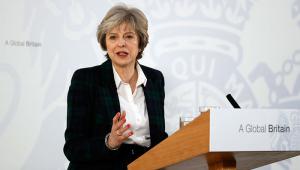Britain’s trade relationship with the European Union is currently in doubt after the country voted to leave the trading bloc in June. With exit negotiations not set to begin until 2017, the IFS assessed the options for post-Brexit UK-EU trade relations.
In particular, the report explored the difference between ‘access’ and ‘membership’ of the European single market, and the costs and benefits to the UK economy of both models. The level of access to the single market that the UK seeks has, it says, implications for other negotiation objectives, such as immigration and EU budgetary contributions.
The report concludes that relinquishing membership of the single market could permanently damage the UK’s economy to the tune of around 4% (to 2030). This is compared to a situation whereby the UK traded with the EU along basic World Trade Organisation terms.
However, if it choose to remain within the single market (by joining the European Economic Area), the UK would almost certainly be subject to politically unpalatable conditions, such as maintaining contributions to the EU budget and accepting the principle of the free movement of people. This is similar to the relationship Norway currently enjoys with the EU.
Moreover, Britain would also likely be compelled to abide by regulations created within the EU, without having input into them, which the IFS said would have serious repercussions for the financial services sector.
Despite these concerns, the report highlights that the benefits to the UK economy of single market membership in the above scenario far outweigh the potential costs.
It says ‘access’ to the single market is “virtually meaningless”, and that any country within the World Trade Organisation can export to the EU. ‘Membership’, however, involves elimination of barriers to trade, in a way that no existing trade deal, customers union or free trade area has achieved.
It also implies the removal of non-tariff barriers, such as licensing and regulatory constraints to supplying goods or services. This has been of vital importance to the growth of the UK’s financial services sector.
So-called passporting rights mean UK-based financial firms can offer services to EU firms directly. Keeping these rights would likely involve being a member of the European Economic Area, at the cost of being subject to regulations designed in the EU without UK input.
Ian Mitchell, research associate at the IFS and report author, said: “From an economic point of view we still face some very big choices indeed in terms of our future relationship with the EU. There is all the difference in the world between ‘access to’ and ‘membership of’ the single market.
He added: “Membership is likely to offer significant economic benefits particularly for trade in services. But outside the EU single market membership also comes at a cost of accepting future regulations designed in the EU without UK input.
“This may be seriously problematic for some parts of the financial services sector. Choices in these domains will most likely be far more important than any deal on budget contributions.”




















